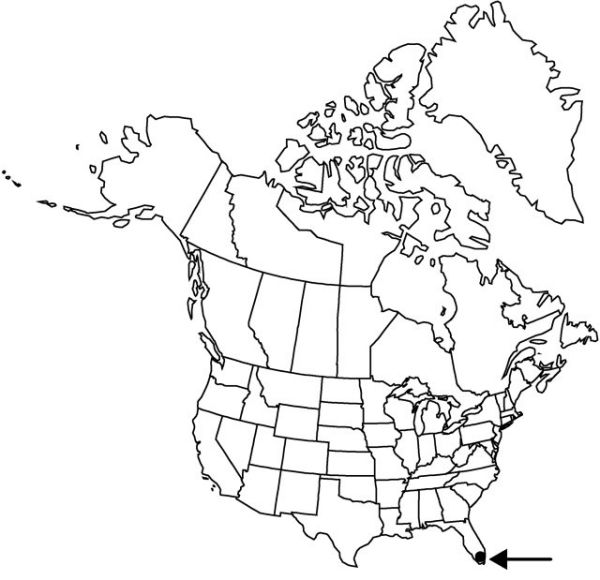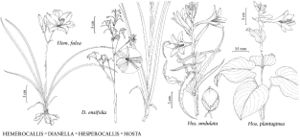Dianella ensifolia
in P. J. Redouté, Liliac. 1(1): plate 1. 1802.
Plants glabrous. Leaves 50–80 × 1.5–2(–3) cm; blade lustrous, margins finely serrate, apex obtuse, basal sheath margins purplish; midvein impressed adaxially, keeled abaxially, keel finely serrate. Inflorescences: panicles 10–15 cm; flowers distal; bracts membranous. Flowers: tepals spreading, sky to light blue, yellow basally, 5-veined, 6 mm; filaments geniculate near middle; pedicel 7–15 mm. Berries 4–5 mm. 2n = 16, 32.
Phenology: Flowering late spring.
Habitat: Open, wet pinelands, near seashores
Elevation: 0 m
Distribution

Introduced; Fla., se Africa, Asia (s China, Formosa, India, Japan), Malaysia, Philippines, widely naturalized elsewhere.
Discussion
In its native range, Dianella ensifolia occurs in a broad ecological range, from seashores, grasslands, and open scrubs to alpine and open lowland forests between sea level and 1600 m. In Florida, this naturalized ornamental probably spreads by its extensive rhizome systems and colorful fruits (W. B. Zomlefer 1998).
Selected References
None.
